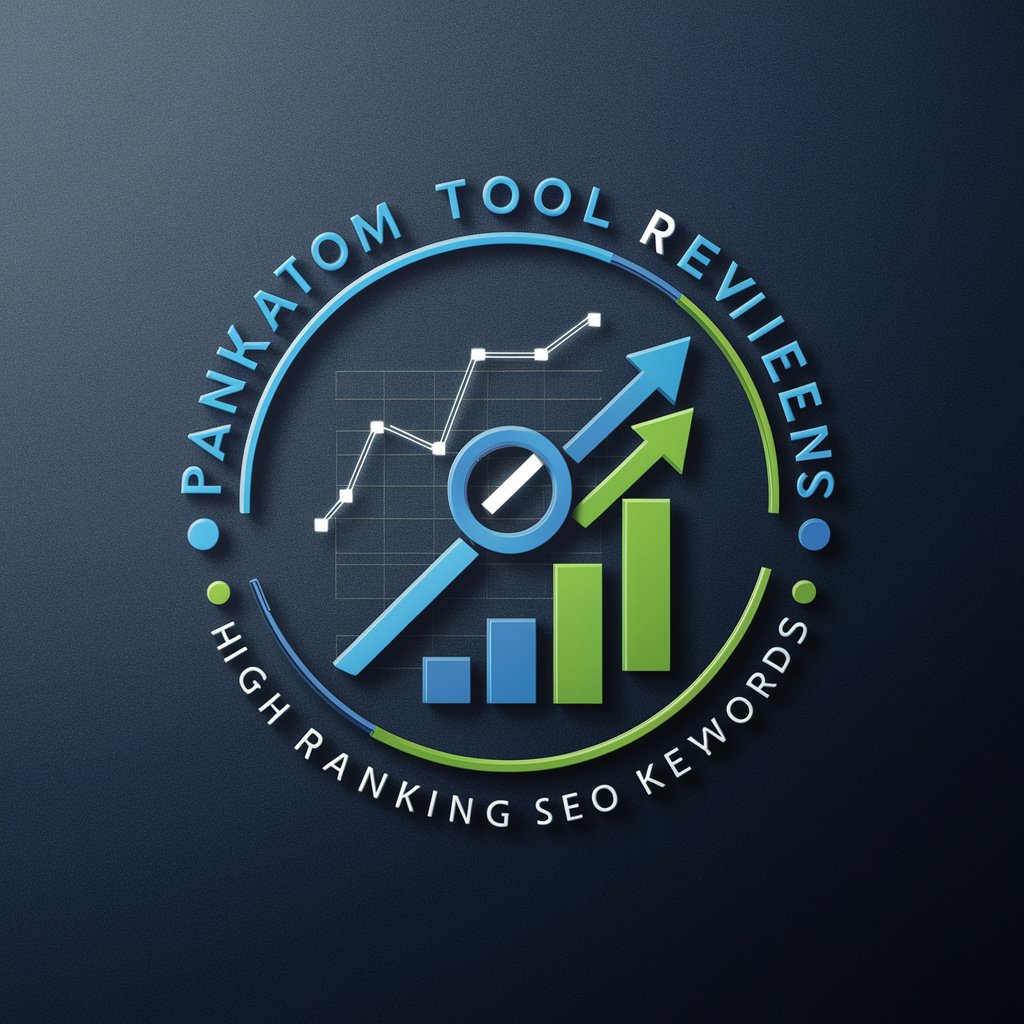
SEO Keywords - SEO keyword research tool

Hello! Let's grow your traffic and revenue with SEO keyword research and analysis.
AI-powered SEO tool for smart keyword targeting.
What keywords can boost my site's traffic?
How do I analyze competitors' keywords?
Can you help with my SEO content calendar?
Show me how to use Google Search Console for SEO.
Get Embed Code
Comprehensive Overview of SEO Keywords
SEO Keywords is designed to help users maximize both web traffic and revenue through strategic keyword research and analysis. Its primary goal is to uncover high-potential keywords that are relevant to users' businesses and content strategies. By analyzing keyword difficulty, search intent, and competition, SEO Keywords helps users target keywords that drive organic growth. For example, if a user runs an e-commerce site selling eco-friendly products, SEO Keywords would help identify keywords like 'sustainable home goods' with low competition but high search volume. This process involves a balance between informational and commercial keywords to attract a wide audience while also converting leads into sales. Powered by ChatGPT-4o。

Core Functions of SEO Keywords
Keyword Research
Example
A blog focused on vegan recipes might need to find keywords that can improve both traffic and monetization. SEO Keywords would provide options like 'best vegan protein sources' (high traffic potential) or 'vegan protein supplements review' (commercial keyword with purchase intent).
Scenario
In this case, the user can create blog posts targeting high-traffic keywords while also placing affiliate links in posts that address commercial keywords, boosting revenue.
Competitor Analysis
Example
For a fitness app developer, SEO Keywords can analyze top competitors like MyFitnessPal to uncover keywords such as 'best fitness tracking app' or 'how to count calories with an app'.
Scenario
Using this data, the app developer can optimize their content and app features based on terms that competitors are ranking for, giving them a competitive edge in search results.
Google Search Console Data Analysis
Example
A fashion retailer might discover that their brand is ranking in position 10 for 'sustainable fashion trends'. SEO Keywords would suggest content updates to move this ranking higher.
Scenario
By tweaking content or improving on-page SEO for that keyword, the retailer could enhance their ranking and capitalize on a keyword that is already attracting impressions but needs optimization to reach the top of search results.
Easy-to-Rank Keywords Identification
Example
A startup offering digital marketing services might need to find less competitive but relevant keywords, such as 'local SEO tips for small businesses', that they can rank for quickly.
Scenario
With SEO Keywords, the startup can focus on long-tail keywords that have low competition and are easier to rank for, helping them build authority and visibility faster in a crowded market.
SEO Content Calendar Creation
Example
An online cooking school might need to create a year-long content calendar. SEO Keywords would identify seasonal keywords like 'holiday baking tips' and 'summer grilling recipes' to guide content planning.
Scenario
This function enables the cooking school to plan content around peak search times, ensuring their site stays relevant and attracts consistent traffic year-round.
Balanced SEO Strategy
Example
A travel blog might need to balance between informational content like 'best hiking trails in Europe' and commercial content such as 'best travel insurance for hikers'.
Scenario
With SEO Keywords, the blog can build topical authority while monetizing through affiliate links or partnerships. This balance keeps traffic flowing from search engines while also driving conversions.
Who Benefits from SEO Keywords?
Small to Medium Business Owners
These users often have limited budgets for SEO and need to prioritize low-competition, high-ROI keywords. SEO Keywords helps them identify scalable opportunities that bring in both traffic and sales, even without a dedicated SEO team.
Content Creators and Bloggers
Content creators, including bloggers, YouTubers, and podcasters, rely on organic traffic to grow their audiences. SEO Keywords assists them in finding high-traffic keywords and niche topics that allow them to rank more easily and grow their content authority.
E-commerce Entrepreneurs
These users require a strong balance between informational and commercial keywords to not only attract traffic but convert that traffic into sales. SEO Keywords helps them identify product-focused keywords with commercial intent and less competition.
Marketing Agencies
Agencies that handle SEO for multiple clients can benefit from SEO Keywords’ competitor analysis and keyword discovery tools to craft targeted strategies for diverse industries, helping their clients rank better in search results.
Startups and Tech Companies
Startups with limited brand visibility need quick wins in SEO. By using SEO Keywords to find easy-to-rank-for terms, they can build domain authority quickly and gradually target more competitive, high-traffic keywords as they scale.

How to Use SEO Keywords
Visit yeschat.ai for a free trial
You can try SEO Keywords without needing a login or ChatGPT Plus. Just head over to yeschat.ai for an easy start.
Define Your Target Audience and Goals
Identify your audience, the content type, and your SEO objectives—whether you're focused on traffic growth or increasing conversions.
Conduct Keyword Research
Use the SEO Keywords tool to find relevant keywords with low difficulty (KD under 30). Prioritize informational and commercial terms for traffic and revenue.
Analyze Competitors
Compare keywords used by your competitors. Look for keyword gaps and identify opportunities to rank for keywords they may not be targeting effectively.
Create Content and Monitor Results
Develop content based on your selected keywords. Continuously monitor Google Search Console data to refine keyword strategy and improve rankings.
Try other advanced and practical GPTs
Image Caption & Keywords for Stock Photography
AI-Powered Caption and Keyword Generator

RankAtom Tool Reviews - High Ranking SEO Keywords
Empower Your SEO with AI-driven Insights

Money Mentor
Empowering Financial Decisions with AI

Money Mentor
Empowering financial decisions with AI

Eclectic Mind
Harness AI's Eclectic Expertise

Strategic Mind
Enhance Strategy with AI Insight

Stock Photo Keywords
AI-powered tool for automatic image keywording.

和風知識探索
Discover Japan with AI-powered Insights

学习助手
Empowering learning with AI precision

Halal Helper
Certify your diet with AI

Is It Halal?
Navigating Halal with AI Insight

最強の占い師
Empower your destiny with AI

SEO Keywords Q&A
What are SEO Keywords and why are they important?
SEO Keywords are specific words or phrases that help define the content of a webpage. They are important because they directly impact search engine visibility, helping attract targeted traffic to your site.
How can I find keywords with low competition?
Use tools like Ahrefs or Semrush to discover keywords with low Keyword Difficulty (KD). Target those with a KD under 30, which are easier to rank for and can still drive significant traffic.
Can I improve my rankings using only informational keywords?
Yes, but it's important to balance informational keywords (which bring traffic) with commercial ones (which lead to conversions). A mix of both will build authority and generate revenue.
What is the role of competitor analysis in SEO?
Competitor analysis helps you understand which keywords are driving traffic to competing sites. This insight allows you to target underused keywords and identify content gaps to outperform competitors.
How often should I revisit my keyword strategy?
SEO is dynamic, so revisiting your strategy every 3 to 6 months is ideal. Monitor performance, adjust for new trends, and continue optimizing your content to maintain or improve rankings.





